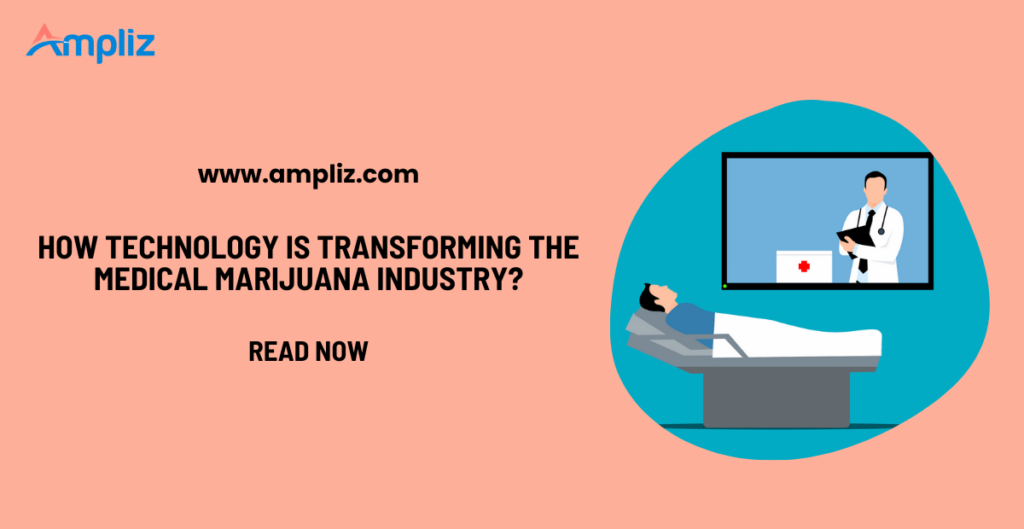Technology is reshaping how we access and understand medical marijuana. From telemedicine platforms that simplify consultations to advanced electronic health records ensuring seamless care, innovation touches every step of the patient experience.
These tools bridge gaps between patients, certified doctors, and state-approved providers. They improve convenience without compromising quality.
How do these advancements benefit patients? What does the future hold for cannabis in healthcare?
Explore practical insights into this evolving industry.
Telemedicine’s Impact on Medical Marijuana Access
Telemedicine redefines patient access to medical marijuana by removing physical barriers. Through virtual consultations, individuals connect with licensed physicians from the comfort of their homes. This eliminates logistical challenges like transportation or location constraints that often delay care.
States embracing telehealth platforms see faster approval processes for cannabis cards. These systems enable doctors to assess patients’ eligibility securely and efficiently while adhering to legal requirements. Patients benefit from streamlined communication, gaining expert guidance without unnecessary hurdles.
These advancements don’t only save time – they empower those with chronic conditions or mobility issues to seek help more easily. Online tools guide patients through every step, ensuring they receive accurate information about regulations and treatment options.
Telehealth represents a practical solution for many seeking relief through cannabis-based therapies. It’s not just about convenience; it’s about creating accessible pathways for improved healthcare outcomes in a growing industry revolutionized by technology.
Tech Platforms Linking Patients and Doctors
Technology now plays a central role in connecting patients with certified doctors for medical marijuana evaluations. Online directories, integrated into platforms, guide users to trusted professionals approved by state regulations. These systems prioritize patient trust by curating verified options instead of leaving them overwhelmed with random searches.
Some platforms also integrate AI-driven tools that match patients’ needs to appropriate doctors based on specific symptoms or conditions. This targeted approach ensures more personalized consultations while saving time during the application process.
Additionally, virtual networks offer direct links for Doctor-approved medical marijuana evaluations, streamlining the journey from initial inquiry to receiving recommendations seamlessly. Patients gain immediate access without facing barriers like extended wait times or unclear instructions about requirements.
These platforms bridge gaps that once existed in cannabis healthcare services through transparency and accessibility. They empower individuals through reliable resources and simplify an otherwise complicated process toward improved health management options.
Streamlining Cannabis Prescriptions with EHRs
Electronic Health Records (EHRs) enhance how medical marijuana prescriptions are managed. These digital systems integrate patient information into a centralized platform, improving efficiency and accuracy across the process. Unlike traditional paperwork, EHRs allow doctors to access detailed medical histories in real-time.
Key benefits include:
- Accurate Tracking: Patient dosage and treatment responses are logged systematically, minimizing errors in care plans.
- Compliance Management: Built-in features help practitioners adhere to state-specific cannabis regulations during evaluations or recommendations.
- Seamless Coordination: Healthcare providers share records securely within networks when secondary opinions or referrals are necessary.
This means personalized care tailored precisely to patients’ conditions without unnecessary delays. They no longer need to repeatedly provide the same details at every step of the approval process.
Both patients and physicians experience smoother workflows when they leverage technology like EHRs – ultimately contributing to better health outcomes within cannabis therapy programs.
Patient-Focused Tools Driving Innovation
Technology is reshaping how patients manage their medical marijuana treatment. Digital tools now provide personalized solutions for tracking progress, monitoring usage, and managing symptoms effectively. These apps allow users to log their daily experiences with cannabis, offering insights into what works best for specific conditions like chronic pain or anxiety.
Some platforms include features that suggest optimized dosing schedules based on patient input. They analyze trends over time to create data-driven recommendations tailored to individual needs while avoiding one-size-fits-all approaches.
Interactive elements like reminders for prescription renewals or scheduled consultations simplify long-term care management. Patients stay informed about their responsibilities without feeling overwhelmed by logistics.
This combination of self-management resources and technological innovation empowers individuals to take an active role in improving outcomes through cannabis-based treatments. It reflects a growing trend toward prioritizing patient engagement in healthcare as the industry evolves rapidly alongside technology advancements.
Simplifying Education Through Mobile Apps
Mobile apps play a critical role in educating patients about medical marijuana, offering information that’s both accessible and user-friendly. These tools cater to beginners and experienced users alike by providing guidance tailored to varying levels of knowledge.
Highlights of these educational platforms include:
- Strain Information: Comprehensive databases help patients understand which cannabis strains best suit specific medical conditions or symptoms.
- Dosage Calculators: Built-in tools guide users in determining accurate dosing based on their treatment needs and experience level.
- Regulatory Updates: Notifications keep individuals informed about changes to local laws or certification requirements.
Many apps also feature interactive FAQs, tutorials, and symptom-tracking options, empowering users with practical resources they can rely on daily. Patients gain confidence as they navigate complex systems surrounding medical marijuana use while ensuring safety and compliance throughout their journey.
These innovations enhance patient awareness, fostering smarter choices through intuitive technology-driven education solutions.
Using Data Analytics for Cannabis Research
Data analytics has become a cornerstone in advancing medical marijuana research. With increasing patient data collected through apps, EHRs, and other platforms, researchers now have access to detailed insights that were previously unattainable.
By analyzing trends in treatment outcomes across diverse demographics, they identify patterns linking cannabis strains or dosages to specific health conditions.
Harnessing analytics sharpens the precision of treatment outcomes and paves the way for therapies that hit the mark with greater accuracy. Researchers can examine how various cannabinoids interact with particular ailments like epilepsy or chronic pain while uncovering potential side effects that may otherwise go unnoticed.
Analytics extend beyond the bounds of clinical application, offering policymakers a trove of empirical evidence to weigh the broader societal implications of medical marijuana legalization. Public health campaigns and guidelines benefit from reliable information derived from these analyses.
Leveraging advanced analytics, researchers pave the way for scientifically validated treatments, moving beyond reliance on anecdotal evidence.
Protecting Patient Privacy in a Digital Era
Securing patient data is a critical focus as digital tools become integral to the medical marijuana industry. The rise of online platforms for evaluations and record management demands rigorous measures to ensure sensitive information remains protected.
Key strategies for ensuring confidentiality include:
- Encryption Protocols: Advanced encryption methods secure sensitive data during transmission and storage. This ensures that only authorized parties access private records.
- Compliance Standards: Adhering to frameworks like HIPAA keeps patient records safe while meeting legal requirements for data protection.
- Regular Audits: Frequent system checks identify vulnerabilities in platforms before breaches can occur, helping organizations stay proactive about cybersecurity threats.
Patients place trust in these systems when seeking care or evaluations online. By implementing robust safeguards, companies reinforce that trust while minimizing risks of unauthorized access or misuse.
Stronger digital defenses not only comply with regulations but also demonstrate an ongoing commitment to respecting patient rights within this evolving healthcare landscape.
Safeguarding Patient Confidentiality in the Digital Realm
As medical marijuana services are increasingly intertwined with technology, the imperative to secure patient information is heightened. Encryption protects sensitive records during transmission, while regular audits detect vulnerabilities early.
Platforms also adhere to strict compliance standards like HIPAA, ensuring data integrity and privacy. These measures foster trust between patients and providers by creating secure systems that prioritize confidentiality within the evolving digital landscape of cannabis healthcare.



